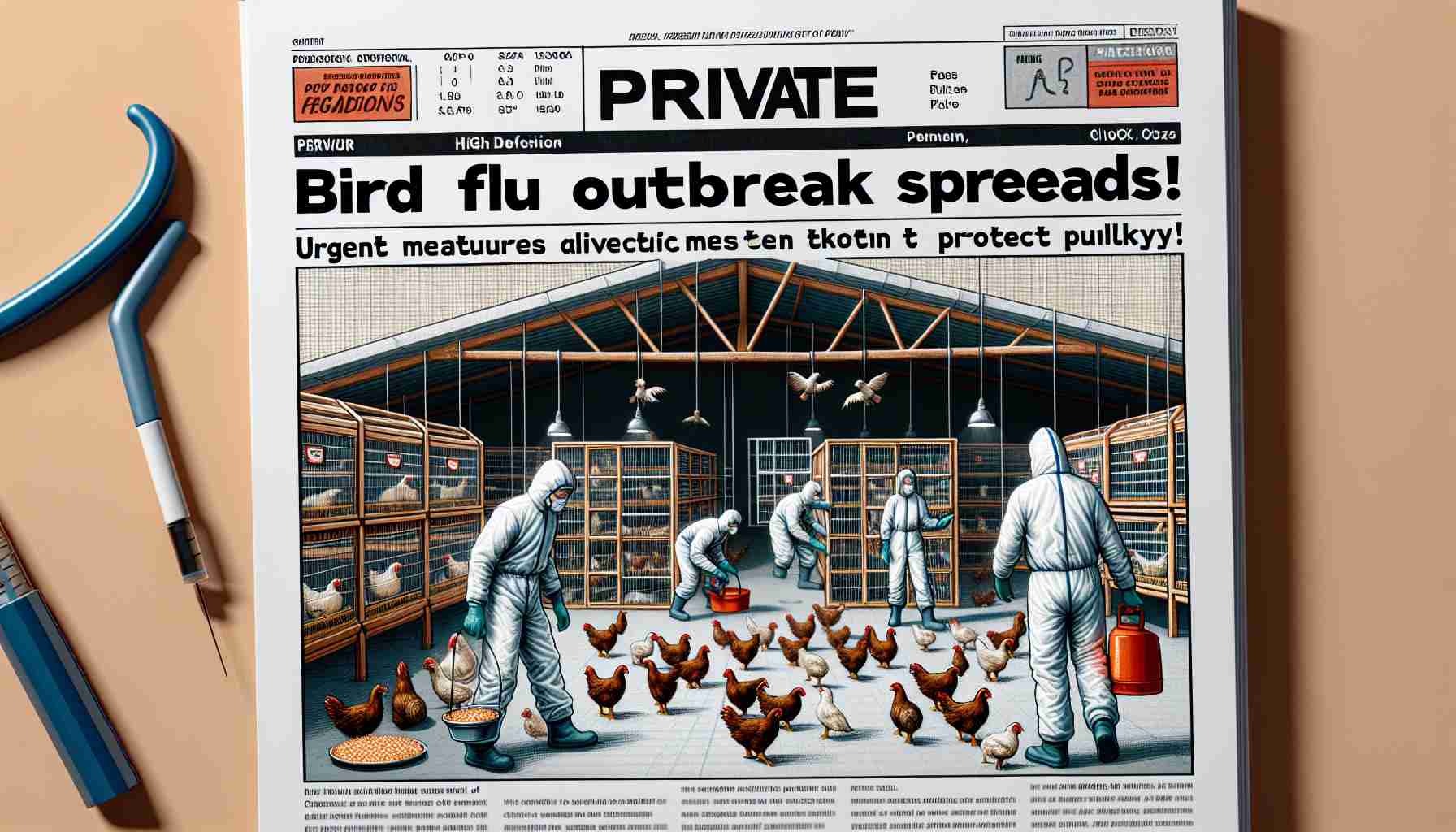Recent Developments in Norfolk
A new case of bird flu has emerged in Norfolk, marking a troubling escalation in the ongoing situation. The government’s Animal and Plant Health Agency (APHA) confirmed that the highly pathogenic avian influenza was detected at a poultry farm located in Dereham. Previously, two other cases were reported approximately 10 miles away in Watton.
In response to this alarming outbreak, officials have initiated a comprehensive response plan which includes the humane culling of all affected poultry. Additionally, a protective cordon has been established, extending 3 kilometers around the latest infection site, accompanied by a larger 10-kilometer surveillance zone to closely monitor the situation.
This outbreak has seen various strains of bird flu detected across six farms in England, affecting locations including Norfolk, Yorkshire, and Cornwall. Authorities have emphasized the importance of stringent biosecurity protocols for all bird keepers to mitigate risks of further outbreaks.
The avian influenza virus, known to plague poultry and wild birds for over a century, typically resurfaces during autumn and recedes in the warmer months. Transmission occurs via droppings, saliva, or contaminated feed and water, with millions of birds culled in previous outbreaks from 2021 to 2023.
Despite the serious implications for bird populations, the UK Health Security Agency reassures the public that the risk to human health remains minimal, and the Food Standards Agency maintains that food safety risks are extremely low.
Norfolk’s Bird Flu Crisis: Key Insights and Safety Measures
Overview of the Bird Flu Situation in Norfolk
A recent outbreak of highly pathogenic avian influenza in Norfolk has raised alarms among health officials and bird keepers alike. The Animal and Plant Health Agency (APHA) confirmed the new case at a poultry farm in Dereham, adding to the two earlier cases identified in Watton, just ten miles away. This situation highlights the ongoing battle against bird flu, which has seen various strains affecting poultry and wild birds in multiple regions across England.
Recent Developments
In response to the outbreak, authorities have implemented a rigorous containment strategy aimed at curbing the spread of the virus. This includes:
– Humane Culling of Affected Birds: All poultry on the infected farm will be culled to prevent further transmission.
– Establishment of a Protective Cordon: A 3-kilometer radius around the infection site has been established to limit the movement of birds and people.
– Surveillance Zone: A broader 10-kilometer surveillance zone has been set up to monitor for additional cases and ensure that biosecurity measures are enforced.
Impact on Bird Keeping
Farmers and bird enthusiasts are urged to adhere strictly to biosecurity protocols, given the virus’s ease of transmission via droppings, saliva, or contaminated feed and water. Proper measures include:
– Regular cleaning and disinfecting of bird housing.
– Avoiding contact between domestic and wild birds.
– Reporting any signs of illness in birds immediately to authorities.
Health Risks and Food Safety
Despite the serious nature of the outbreak, the UK Health Security Agency has reassured the public that the risk of human infection remains low. The Food Standards Agency also underscores that the food safety risk related to poultry consumption is extremely minimal, stating that cooking poultry to the proper temperature effectively eliminates any virus present.
Future Predictions and Measures
Experts predict that with the arrival of autumn, periods of bird migration may worsen outbreaks. Consequently, ongoing vigilance will be essential. The government and health agencies are prepared to act swiftly, with plans for additional monitoring and testing at poultry farms across affected regions.
Conclusion
While the recent bird flu cases in Norfolk present significant challenges for poultry farmers and bird keepers, comprehensive response measures are in place to mitigate the impacts. By following stringent biosecurity protocols and remaining informed, both professionals and the public can help prevent further outbreaks and ensure the safety of the food supply.
For more detailed information on biosecurity protocols and poultry health, visit UK Government.
